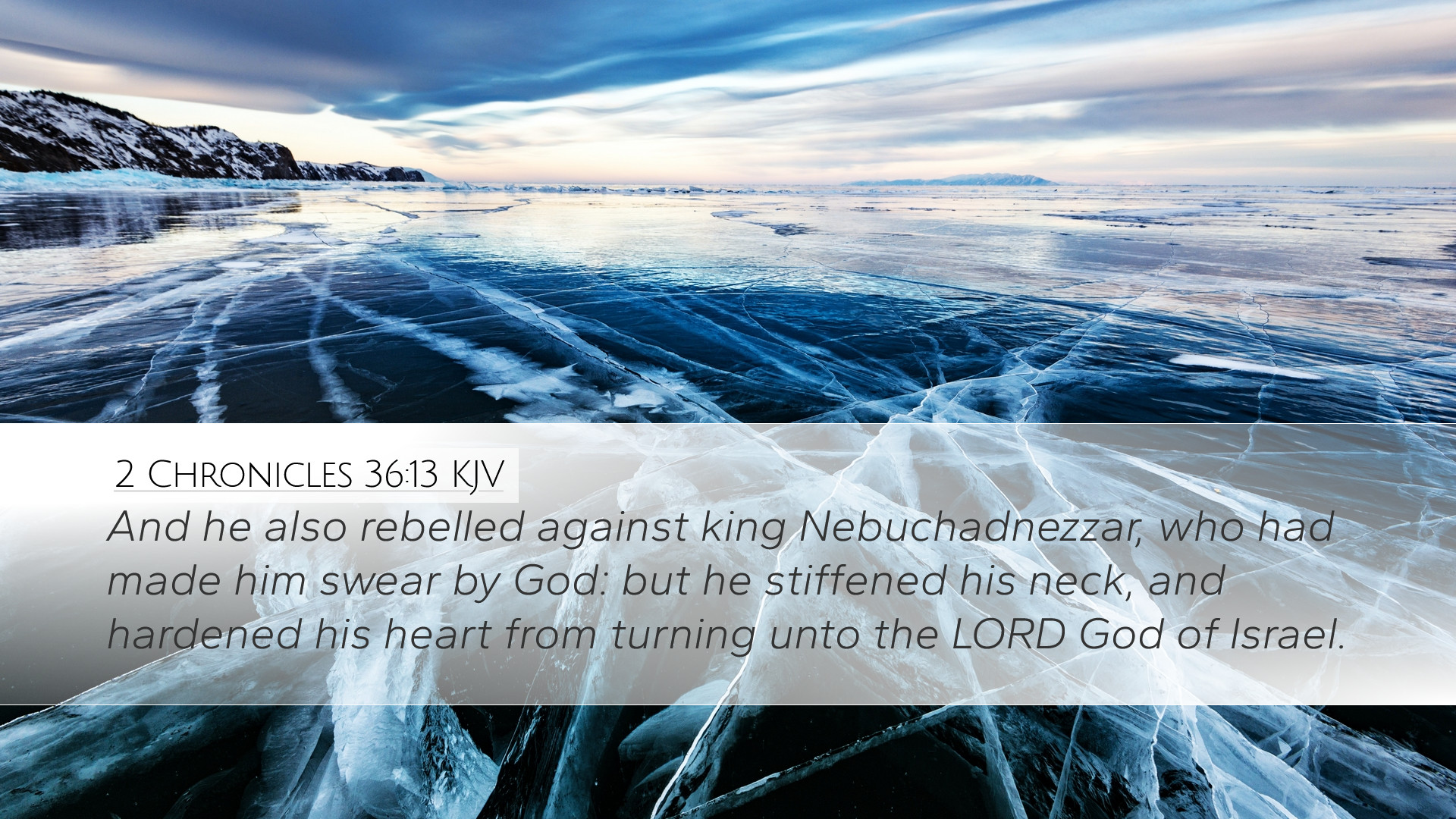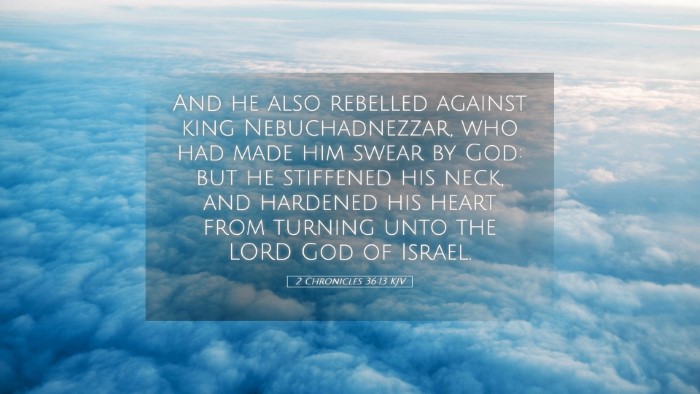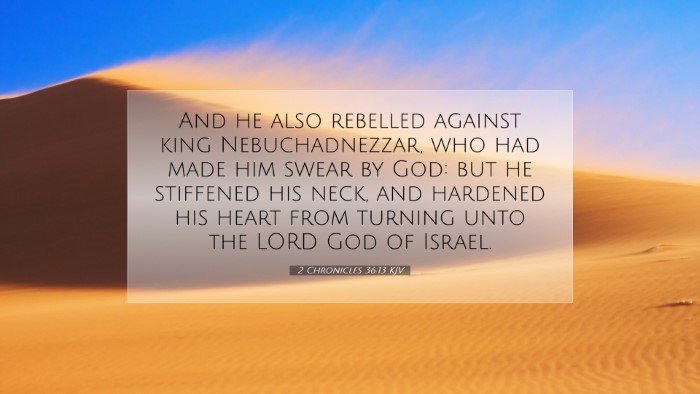Commentary on 2 Chronicles 36:13
Verse: 2 Chronicles 36:13 - "And he also rebelled against king Nebuchadnezzar, who had made him swear by God: but he stiffened his neck, and hardened his heart from turning unto the Lord God of Israel."
Summary of Key Themes
- The Nature of Rebellion: The action of Zedekiah, the king of Judah, is a reflection of profound rebellion against authority, both earthly and divine.
- Covenant and Oath: Zedekiah's oath to Nebuchadnezzar signifies the serious nature of political alliances and the expectations therein, particularly when made before God.
- Stubbornness: The language of 'stiffening the neck' emphasizes a willful resistance to God's call, demonstrating a hardened heart against divine intervention.
- Consequences of Disobedience: The unfolding events serve as a stark reminder of the dire consequences that stem from rebellion against God.
In-Depth Analysis
Zedekiah, referred to in this passage, was the last king of Judah and a character synonymous with disobedience, as this scripture illustrates the ultimate failure of his reign due to his rebellion against Nebuchadnezzar and, more importantly, against God. This incident illustrates the moral decline of Judah and is pivotal for understanding the broader context of the nation's fate.
Matthew Henry's Commentary
Matthew Henry emphasizes the severity of Zedekiah's actions, noting that he not only revolted against Nebuchadnezzar but also acted against God's express will. Henry delineates Zedekiah's stubbornness as indicative of the greater national sin of Israel, illustrating how a leader's failure can lead an entire nation into peril.
Henry points out the importance of Zedekiah’s covenant with Nebuchadnezzar, demonstrating that when covenant bonds are broken, it invites divine judgment. His analysis shows that Zedekiah's rebellion was ultimately against the divine order established by God, and thus he reaped the consequences of his defiance.
Albert Barnes' Commentary
Albert Barnes notes that this verse highlights the tragic consequences of Zedekiah’s choice to rebel after having sworn loyalty to Nebuchadnezzar. He elaborates on the gravity of breaking an oath sworn before God, thus equating it to covenant infidelity.
Barnes also discusses the phrase ‘hardened his heart,’ suggesting it implies a progressive hardening that leads one away from God. He interprets this as a warning not only to leaders but to all who claim to serve God: the danger of persistent disobedience can lead to irreversible outcomes.
Adam Clarke's Commentary
Adam Clarke provides a historical background of Zedekiah’s reign, underscoring the political currents of the time. Clarke argues that Zedekiah’s initial submission to Nebuchadnezzar was a wise political move, but his later rebellion stemmed from pride and a misguided desire for independence.
Clarke expands on the implications of Zedekiah’s hard-heartedness, framing it within a theological discussion about human nature’s propensity to resist divine authority. He reflects on how the heart's hardness is a significant spiritual issue, calling for self-examination among readers to consider their own responsiveness to God’s directives.
Application for Contemporary Readers
This verse serves as a profound reminder for modern readers—pastors, scholars, and laypeople alike—of the eternal consequences of rebellion against divine authority. Leaders in spiritual contexts are called to heed the lessons from Zedekiah’s life, remaining vigilant against the temptations that lead to stubbornness and disobedience.
In the context of ministry and leadership, there is an intricate balance between following God’s commands and navigating earthly authority. This passage encourages a reflection on how to practice integrity in both realms, engaging with a heart fully attuned to God rather than one hardened by pride and ambition.
Conclusion
In summary, 2 Chronicles 36:13 is a multifaceted passage that encapsulates profound theological and historical insights about rebellion, leadership, and divine authority. It serves as a cautionary tale that challenges both individuals and communities to evaluate their relationship with God, urging them to avoid the fate of Zedekiah through steadfast obedience and humility.


